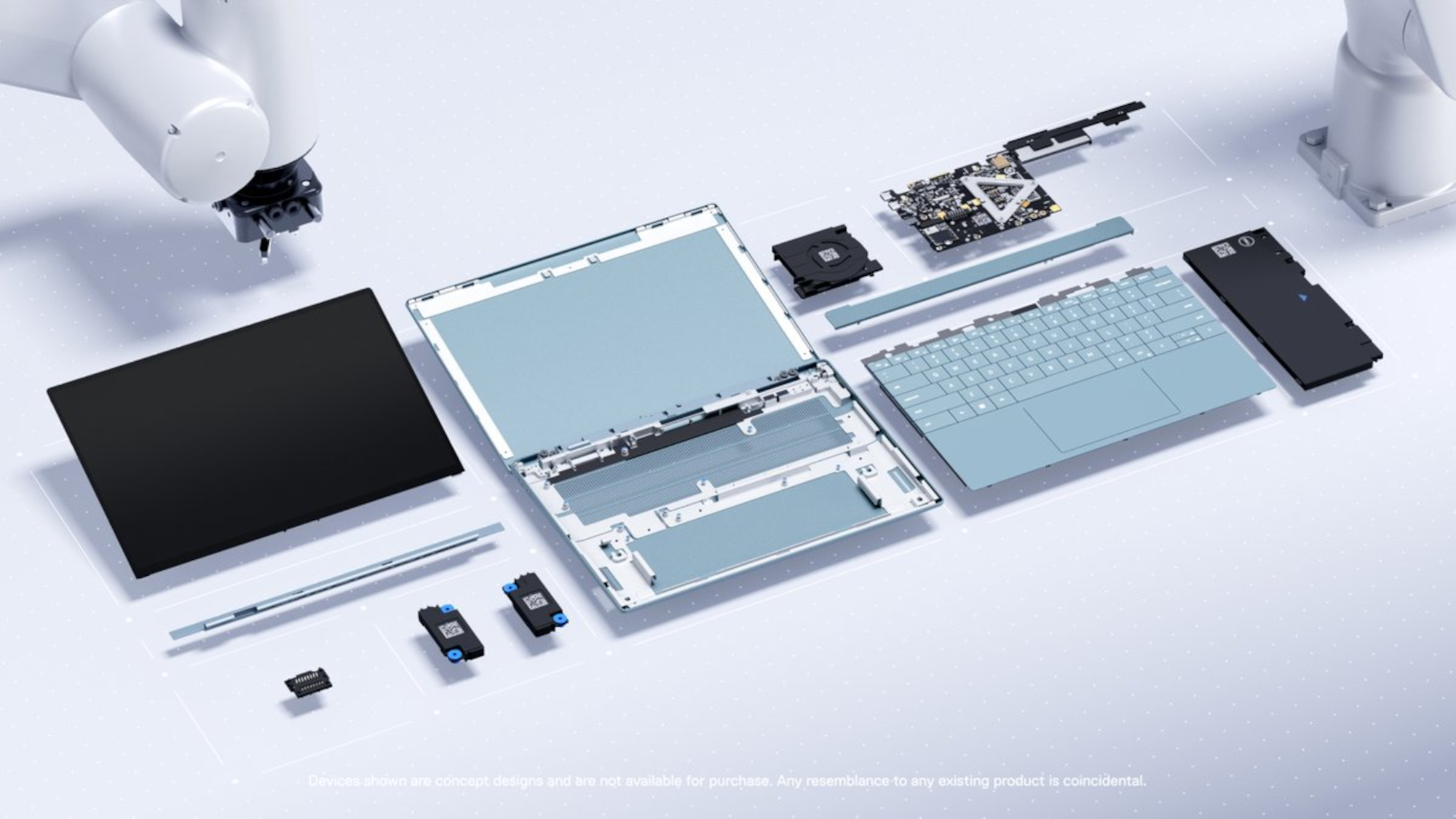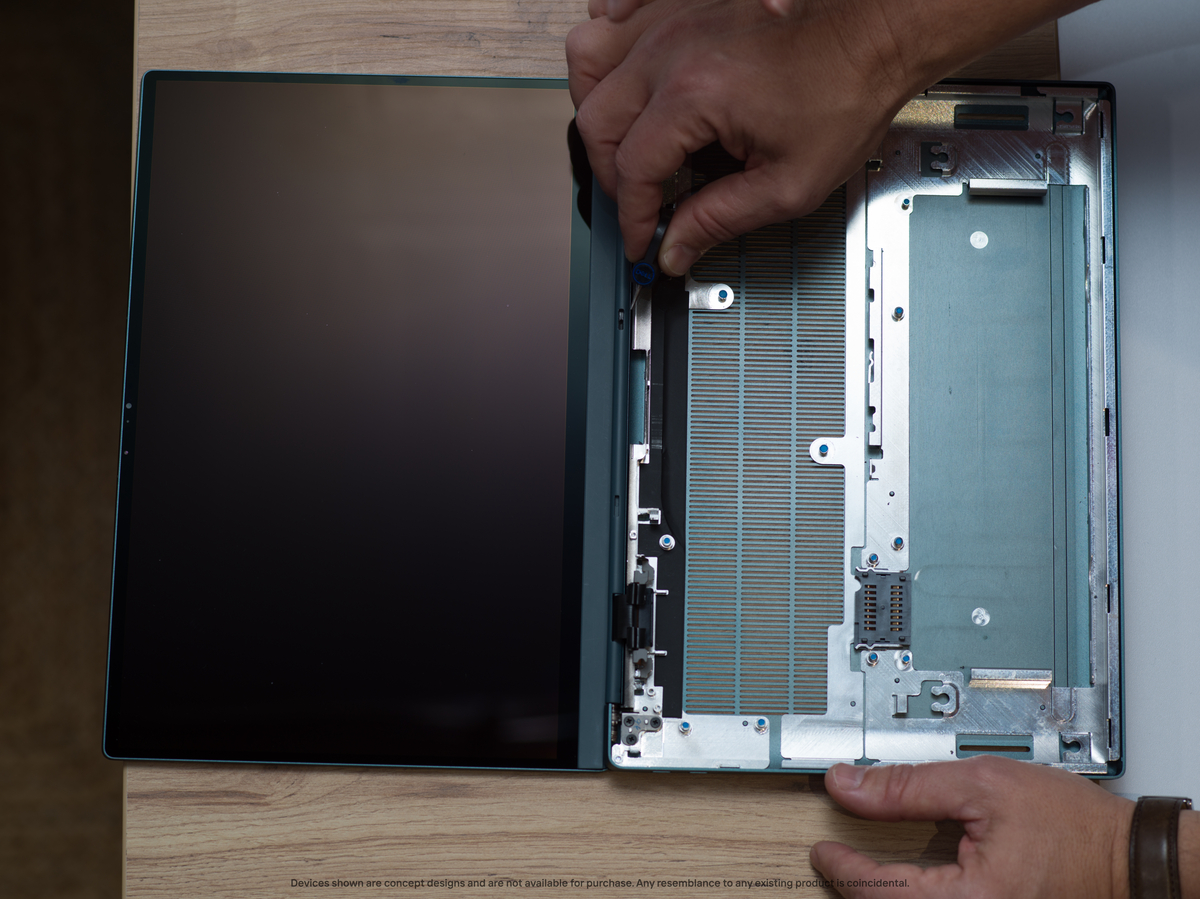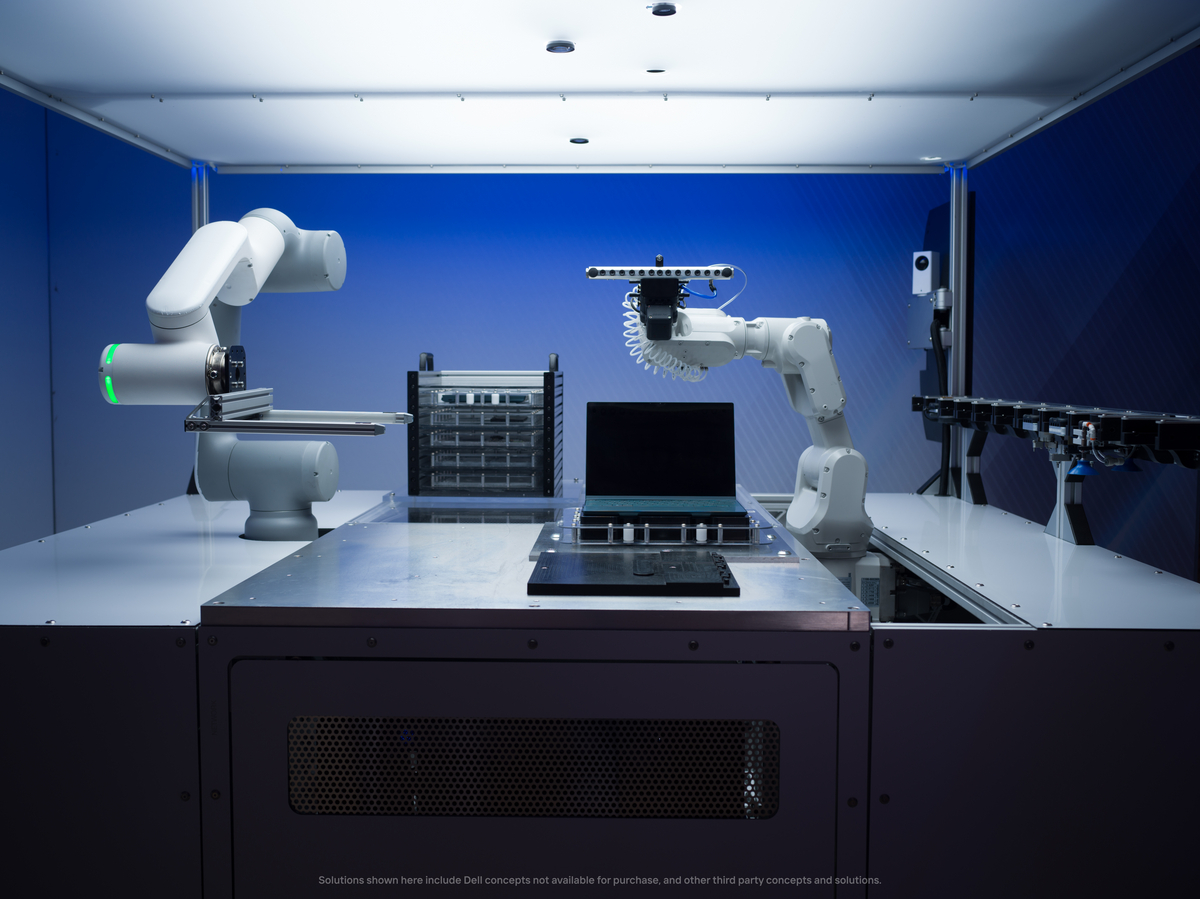Dell’s Concept Luna is the future of laptops — here's why
Repairable and sustainable

Dell introduced Concept Luna one year ago. The proof-of-concept laptop was designed in collaboration with Intel to be an easier-to-repair and more eco-friendly device. It's not unfair to say Dell took a page from Framework with Concept Luna. If you’re part of the right-to-repair crowd or simply want more environmentally friendly computers, Concept Luna is something to get excited about.
Today, Dell has revealed the current status of Concept Luna. Dell says its Experience Innovation Group engineers have worked hard over the past year to further refine Concept Luna’s modular design. This includes eliminating the need for adhesives and cables and minimizing the use of screws. The company claims these refinements will make the laptop easier to repair and dismantle. In turn, this will speed up the repair and disassembly process.

According to Dell, it can take recycling partners over an hour to disassemble a PC with current technology that uses screws, glues and other soldered components. Dell claims Concept Luna’s updated design reduces disassembly time to “mere minutes.” The company says it has commissioned a micro-factory to guide its design time, with the aim of making a device that robots can quickly take apart.
“By marrying Luna’s sustainable design with intelligent telemetry and robotic automation, we’ve created something with the potential to trigger a seismic shift in the industry and drive circularity at scale,” said Dell’s Glen Robson in a blog post. “A single sustainable device is one thing, but the real opportunity is the potential impact on millions of tech devices sold each year, and optimizing the materials in those devices for future reuse, refurbishment or recycling.”

Dell also stated that the telemetry added to Luna provides the opportunity to diagnose the health of individual components so that nothing goes to waste. This is important because not all components reach end-of-life at the same time. For example, folks who work from home may use an external monitor or keyboard. Since those components are barely used, they may still be functional even when the motherboard is ready to be replaced. Thanks to Luna’s modular design, users can replace worn-out components but retain components that still work.
Though Concept Luna is still very much a concept, Dell’s continued support of the project shows the company’s commitment to repairable and reusable laptops and computers. If the project ever comes to fruition and becomes successful, perhaps we’ll see other computer manufacturers develop similar products. If the tech industry can do its part to reduce e-waste, then we’ll all be better off.
It's possible we'll hear more about Concept Luna at CES 2023, so be sure to come back to Tom's Guide for everything being announced at the big tech expo in January. Also, make sure you check our Dell coupons page for the latest promo codes and offers.
Get instant access to breaking news, the hottest reviews, great deals and helpful tips.

Tony is a computing writer at Tom’s Guide covering laptops, tablets, Windows, and iOS. During his off-hours, Tony enjoys reading comic books, playing video games, reading speculative fiction novels, and spending too much time on X/Twitter. His non-nerdy pursuits involve attending Hard Rock/Heavy Metal concerts and going to NYC bars with friends and colleagues. His work has appeared in publications such as Laptop Mag, PC Mag, and various independent gaming sites.
 Club Benefits
Club Benefits





